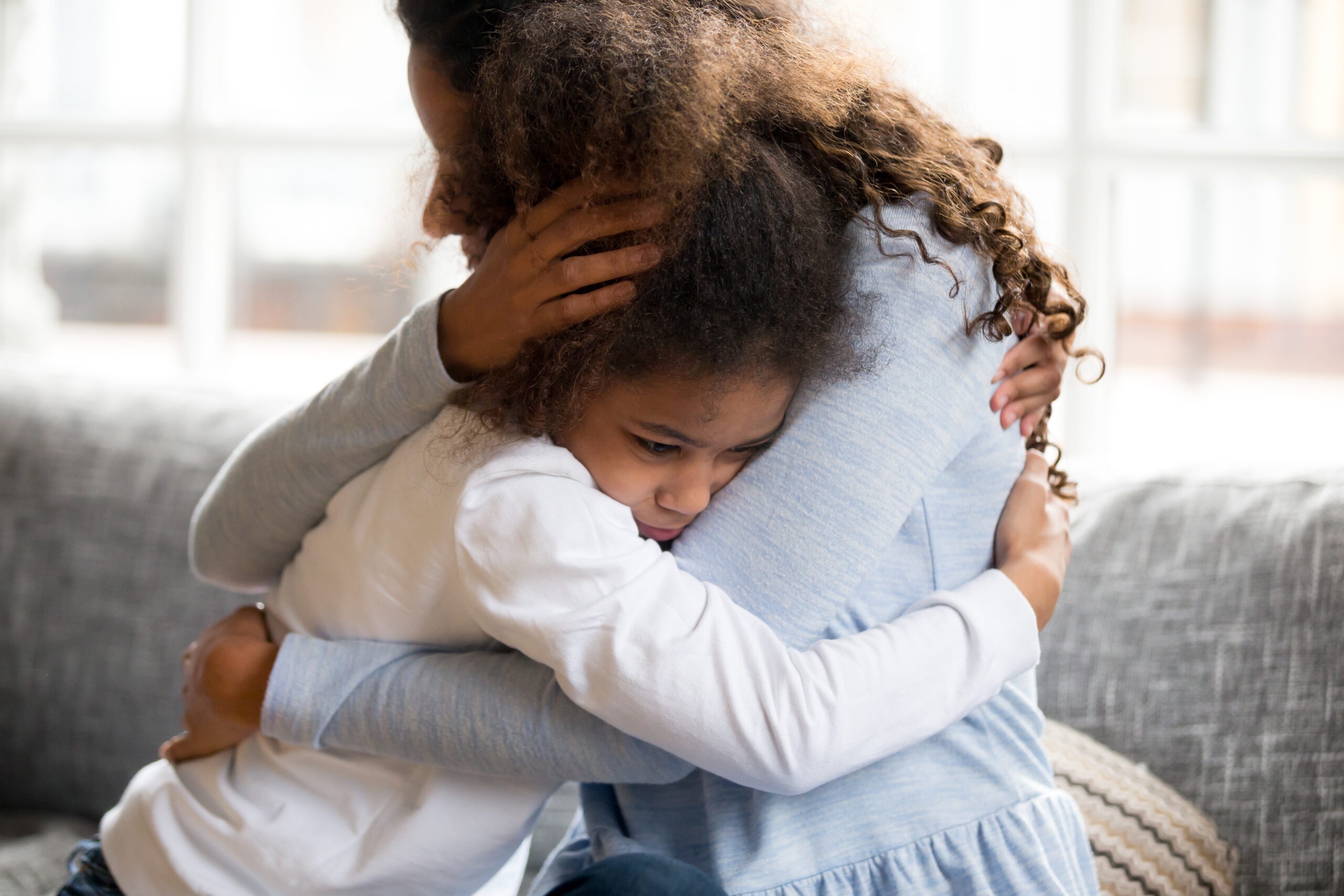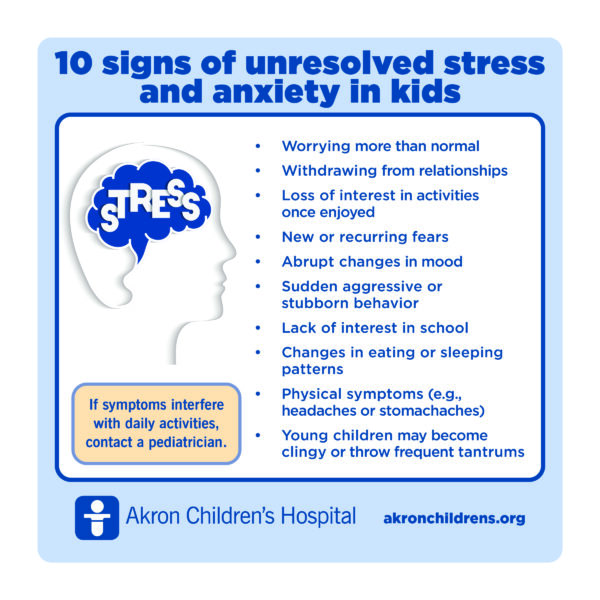 Stress is a natural part of life. Everyone feels stress at times—even kids—and occasional anxiety is a normal reaction to the stress we feel.
Stress is a natural part of life. Everyone feels stress at times—even kids—and occasional anxiety is a normal reaction to the stress we feel.
Kids may be stressed or worried about school or grades, juggling responsibilities and activities, problems with friends, or moving schools. They might even feel stress at home with the loss of a loved one or divorce.
But, stress and anxiety aren’t all bad.
“A certain amount of stress is normal and can actually be a good thing,” said Elle Brennan, PhD, a child and adolescent psychologist in Akron Children’s NeuroDevelopmental Science Center. “Stress can help kids prepare for a big test or face a big moment in their sport. These feelings may be uncomfortable, but they serve a purpose to gather your focus and energy to face a challenge or threat.”
The problem comes when kids feel a prolonged sense of distress and anxiety. It may lead to avoidance behaviors that become habitual, which can significantly interfere with kids’ daily functioning. That’s when stress and anxiety become a disorder and can change the way a child acts, thinks and feels.
Dr. Brennan sheds light on stress and anxiety vs. anxiety disorder, symptoms and how to teach kids healthy ways to deal with it.
10 signs of unresolved stress and anxiety in kids

“Kids with an anxiety disorder show similar signs, but the volume is turned way, way up,” said Dr. Brennan. “The telltale sign of an anxiety disorder is avoidance of activities and situations that are uncharacteristic of a child the same age. Symptoms are severe and behavior starts to interfere with a child’s daily life. Kids may even feel shaky, jittery or short of breath in situations that don’t seem to warrant it.”
How to help kids cope with stress and anxiety
One of the best ways to help kids overcome stress and anxiety is to foster resilience. Resilience teaches kids the skills to cope with challenging situations, how to recover from them with confidence, and better prepares them for future stressors.
“A parent’s role is to help guide and support a child through the stressor, and not just completely take it away,” Dr. Brennan warned. “When parents see patterns of distress, if they step in and rescue the child, kids aren’t learning to cope and face their fears.”
She offers 7 ways to help children cope and build resilience:

The key to helping kids overcome stress and anxiety is to foster resilience, which teaches them the skills to cope with challenging situations and how to recover with confidence.
- Recognize kids’ feelings and model how to manage them. Offer empathy when your children are upset or worried to illustrate you understand their point of view. Also, teach your kids that emotions are good and talking about them is necessary for healing.
- Teach kids to let go of things they can’t control. Teach your kids to let go of the things they can’t control and instead, keep the focus on what they can control.
- Role play or discuss scenarios for problem solving. For younger children, you can role play by pretending with your child that his stuffed animals have some of the same anxieties he does and show how the stuffed animal deals with anxiety successfully. For older kids, discuss ahead of time what they might experience in a given situation and what they can do to manage it.
- Be an advocate for your child when they can’t speak for themselves. For instance, talk to your child’s teachers to develop an intervention plan if anxiety starts impacting school success and learning.
- Teach kids relaxation techniques. An easy one for children is to “smell a flower” by breathing in through their nose and “blowing out a candle” by breathing out through their mouth 5 – 6 times when feeling stressed to help them calm down.
- Create consistent family routines and maintain personal relationships. Kids thrive in a structured environment because it helps them feel safe. Also, keeping relationships with peers and family strengthens kids and creates a sense of normalcy.
- Maintain your kids’ physical health. Strong bodies support strong minds. Encourage a balanced diet and regular physical activity.
When to seek professional help
When signs of intense stress or anxiety do not decrease or disappear, and once symptoms become severe and behavior starts to interfere with daily functioning, it’s time to seek professional help.
A good place to start is with your child’s pediatrician. The provider can screen for anxiety disorders, offer ways to help your child cope and refer for further professional help, if necessary.
Get to know Akron Children’s pediatric providers and schedule an appointment online if you think your child is suffering from anxiety. Additional resources for parents are available on our website.











